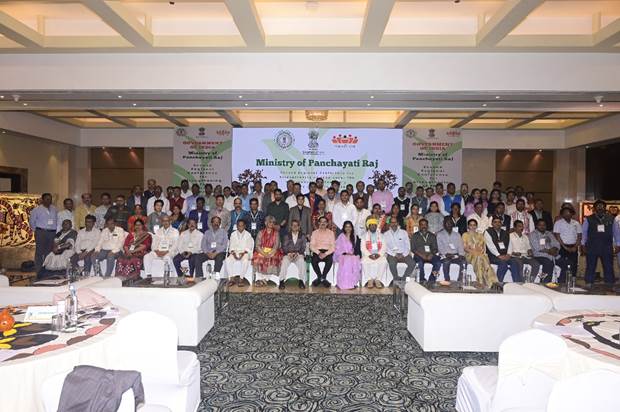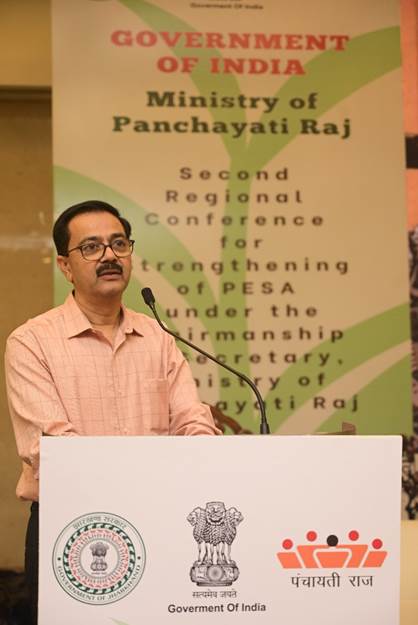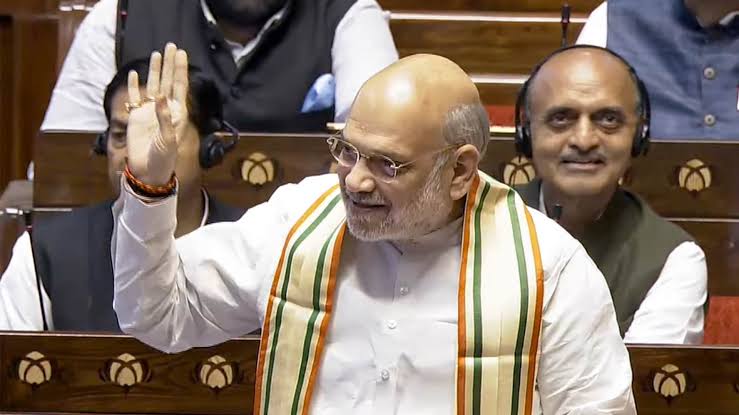The Ministry of Panchayati Raj recently concluded a two-day Regional Conference in Ranchi, Jharkhand, dedicated to strengthening the Provisions of the Panchayats (Extension to Scheduled Areas) Act, 1996 (PESA). This legislation plays a vital role in ensuring self-governance for tribal communities residing in designated Scheduled Areas across India.:
 The conference served as a platform for reaffirming the government’s commitment to empowering tribal communities. Secretary, Ministry of Panchayati Raj, Shri Vivek Bharadwaj, emphasized the prioritization of schemes like PM-JANMAN Yojana, ensuring seamless delivery of government benefits to eligible beneficiaries. He also highlighted the significance of collaboration among various departments and stakeholders to address challenges related to PESA implementation effectively. This collaborative approach underlines the government’s recognition that successful PESA implementation requires a unified effort.
The conference served as a platform for reaffirming the government’s commitment to empowering tribal communities. Secretary, Ministry of Panchayati Raj, Shri Vivek Bharadwaj, emphasized the prioritization of schemes like PM-JANMAN Yojana, ensuring seamless delivery of government benefits to eligible beneficiaries. He also highlighted the significance of collaboration among various departments and stakeholders to address challenges related to PESA implementation effectively. This collaborative approach underlines the government’s recognition that successful PESA implementation requires a unified effort.
The announcement of a National Conference on PESA in the presence of political leadership signifies the intent to elevate PESA to a national focus area. This broader engagement aims to further advance the agenda and garner wider support for effective PESA implementation.
The conference underscored the importance of strong Gram Sabhas – village assemblies – and active public participation as cornerstones of genuine tribal community empowerment. Recognizing the pivotal role of Gram Sabhas, the call for a definitive strategy for PESA implementation emphasizes the need for concrete action plans. Additionally, the emphasis on learning from best practices across different regions encourages participants to identify and adopt successful models for wider benefit.
The conference highlighted the crucial elements of proper resource utilization and fostering a spirit of inclusivity to ensure development reaches all segments of the communities. Leaving no one behind was emphasized as a critical aspect of achieving sustainable progress. Furthermore, the crucial role of civil society organizations (CSOs) and NGOs in ensuring PESA compliance was acknowledged. Their participation and vigilance are crucial for safeguarding the rights and interests of tribal communities.
The conference facilitated knowledge sharing through engaging discussions on various aspects of PESA implementation, including the role of non-government stakeholders and the enforcement of the Forest Rights Act in PESA areas. Additionally, presentations on diverse aspects of PESA implementation offered valuable insights and actionable recommendations. Case studies and success stories provided inspiration and guidance for participants seeking to enhance their efforts in their respective regions.
The conference concluded with a resounding resolution from the participating states of Andhra Pradesh, Chhattisgarh, Jharkhand, Odisha, and Telangana to maintain the momentum and work towards the successful, envisioned, and effective implementation of PESA. This collective commitment paves the way for tangible improvements in the lives of tribal communities residing in Scheduled Areas.




